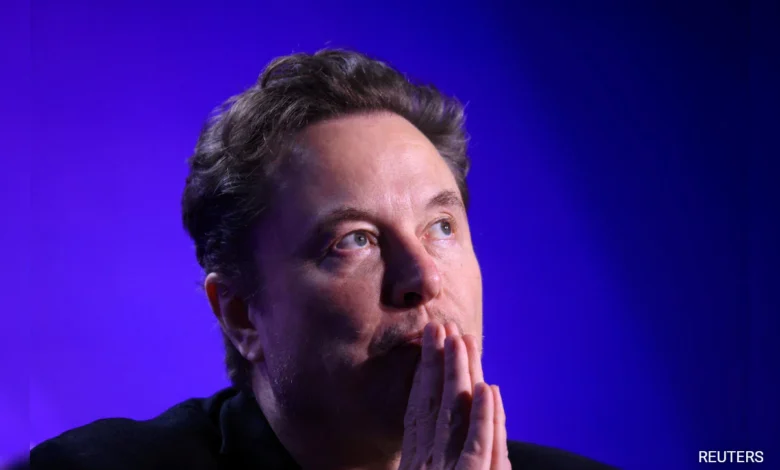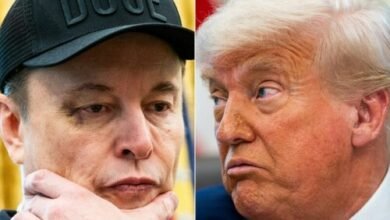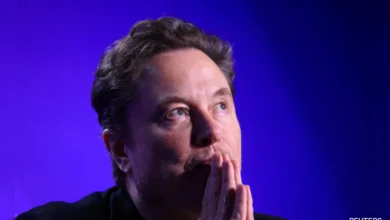Indian MP joins Musk’s bandwagon of provocation against Pakistanis

Tech billionaire Elon Musk — who has been riling up European leaders with his defence of far-right figures and tropes in recent weeks — has now entered a contentious debate surrounding the term “Asian grooming gangs”, with his latest remarks sparking concerns of perpetuating harmful anti-Pakistani stereotypes.
Musk’s latest intervention came after an Indian lawmaker Priyanka Chaturvedi criticised the British prime minister’s use of the generic term “Asian” in relation to child sexual abuse scandals, largely involving men of Pakistani heritage.
Chaturvedi, a leader of India’s Uddhav Thackeray-led Shiv Sena, wrote on X (formerly Twitter), “Repeat after me, they aren’t ASIAN Grooming Gangs but PAKISTANI grooming gangs.”
Musk replied with a terse “True,” signaling his support for her remarks. The exchange has been widely covered in Indian media, with outlets hailing Musk’s stance as aligning with Chaturvedi’s criticism of the broad-brush label.
The X owner’s tweets have added fuel to a debate that has frequently drawn criticism for targeting specific ethnic communities.
Speaking to Dawn, UK Labour MP Naz Shah described Musk’s comments as “dangerous” and likely to exacerbate divisions. “For me, the idea that Musk is supporting someone that our courts convicted, like Tommy Robinson, is all you need to know,” Shah said, referring to the far-right activist notorious for stoking anti-Muslim sentiment.
She also questioned Musk’s priorities, highlighting the disconnect between his rhetoric and actionable solutions. “Jess Phillips [Labour MP] has done more on domestic violence than Musk and all these guys put together. If Musk really wanted to help with violence against women, he should ensure his platform is engaged in that conversation,” Shah added.
Concerns over Musk’s involvement echo past narrative about Pakistani men in comments made by British Home Secretary Suella Braverman, who referred to Pakistanis in ways widely condemned as unfairly targeting Pakistanis as a whole. Advocacy groups argue that such narratives risk inflaming divisions, particularly in multicultural societies like the UK.
Naz Shah underscored the broader implications of such rhetoric, pointing to risks of violence fueled by divisive narratives. “This is very real,” she warned. “Fanning flames of division and hatred has dire consequences, as we’ve seen with tragedies like the Christchurch mosque attacks. This is a dangerous game that risks people’s lives.
Organisations such as the Network of Sikh Organisations (NSO) have long advocated for greater accuracy in discussing these issues. The NSO has repeatedly emphasised the harm caused by vague terminology such as “Asian grooming gangs,” which unfairly implicates wider South Asian communities.
“There is a legitimate need for accuracy,” the NSO noted in a statement, “but also a responsibility to avoid fostering division and hatred.”
As the debate unfolds, critics of Musk’s remarks are urging greater focus on systemic solutions rather than divisive commentary. The concern is that influential figures like Musk, with his massive platform, may unwittingly amplify harmful stereotypes that detract from meaningful efforts to address crimes and support victims.
As MP Naz Shah cautioned, “We need to focus on facts, on data, and on actions that protect all vulnerable people—not on unwarranted targeting of specific groups.”



